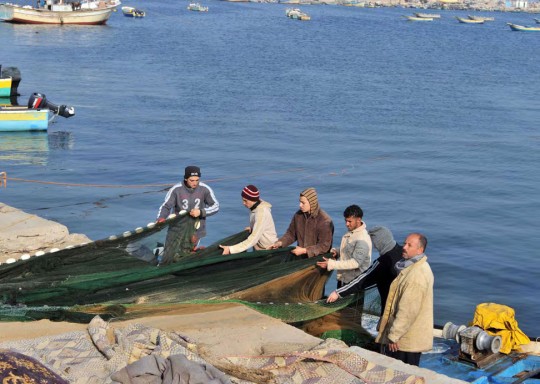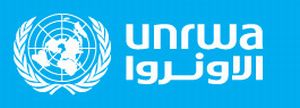UN agency seeks $300 million to assist Palestinians in West Bank and Gaza
UN agency seeks $300 million to assist Palestinians in West Bank and Gaza

The United Nations today launched an emergency appeal for just over $300 million to assist Palestinians living in the Gaza Strip and the West Bank who are still dealing with the effects of the conflict that ended three years ago as well as various humanitarian needs.
Israel launched a three-week offensive in Gaza in December 2008 with the stated aim of ending rocket attacks by Hamas and other groups. At least 1,300 Palestinians were killed and some 5,300 were injured in the heavy bombardment and fighting in densely populated areas, which reduced homes, schools, hospitals and marketplaces to rubble.
“The effects of the war still persist today and the humanitarian needs of the women, men and children of Gaza remain widespread and acute,” said Margot Ellis, Deputy Commissioner-General of the UN Relief and Works Agency for Palestine Refugees in the Near East (UNRWA).
The effects of the war still persist today and the humanitarian needs of the women, men and children of Gaza remain widespread and acute.
The appeal focuses on three strategic priorities – food security, protection and emergency response capability. Eighty per cent of the requested funds will be used to promote food security through food assistance, cash assistance and job creation programmes.
A sizeable portion of the appeal also aims to protect the rights of refugees and improve their access to basic emergency health, water, sanitation, education, and temporary shelter.
Speaking at the Agency’s headquarters in Gaza, Ms. Ellis told reporters that “despite an easing of access, Gaza remains under a blockade and its population subject to collective punishment, an act illegal under international law.”
Israel imposed the blockade on Gaza for what it called security reasons after Hamas, which does not recognize Israel’s right to exist, ousted the Fatah movement in the Strip in 2007.
Despite the ongoing blockade, UNRWA has continued its reconstruction efforts, the Agency stated in a news release. Out of a $667 million reconstruction plan, UNRWA has been able to complete 22 projects worth some $22.5 million and is presently working on implementation of further projects worth some $115 million.
UNRWA noted that while this is a sizeable amount and reflects good progress, dozens more schools and thousands of homes still need to be built. It welcomed the steps made by the Israeli authorities in approving projects, while stressing the need to step up the pace of reconstruction.
“Three years on, UNRWA calls on the international community to work with the relevant parties to ease further the restrictions, give swifter approval for more projects and put an end to the blockade,” it stated.
The Agency added that the continuing blockade and the restrictions on exports have far reaching consequences which increase poverty and aid dependency and the demand for UNRWA’s emergency services.
A quarter of the UNRWA appeal is for the West Bank, where, according to Ms. Ellis, “forced displacements, settlement expansion, and settler violence are taking a devastating toll on the communities UNRWA serves.”
Since the beginning of 2011, nearly 1,100 Palestinians, including 618 children, have been displaced due to demolitions in East Jerusalem and Area C – the over 60 per cent of the West Bank where Israel retains control over security, planning and building – according to UNRWA.
UNRWA provides assistance, protection and advocacy for nearly five million registered Palestine refugees in Jordan, Lebanon, Syria and the occupied Palestinian territory, pending a solution to their plight.
###
About the United Nations Relief and Works Agency for Palestine Refugees in the Near East (UNRWA)

The United Nations Relief and Works Agency for Palestine Refugees in the Near East (UNRWA) provides assistance, protection and advocacy for some 5 million registered Palestine refugees in Jordan, Lebanon, Syria and the occupied Palestinian territory, pending a solution to their plight.
UNRWA is funded almost entirely by voluntary contributions from UN member states.
UNRWA provides assistance, protection and advocacy for some 5 million registered Palestine refugees in the Middle East.
The Agency’s services encompass education, health care, relief, camp infrastructure and improvement, community support, microfinance and emergency response, including in times of armed conflict.
Establishment
Following the 1948 Arab-Israeli conflict, UNRWA was established by United Nations General Assembly resolution 302 (IV) of 8 December 1949 to carry out direct relief and works programmes for Palestine refugees. The Agency began operations on 1 May 1950.
In the absence of a solution to the Palestine refugee problem, the General Assembly has repeatedly renewed UNRWA’s mandate, most recently extending it until 30 June 2014.
UNRWA services
Since its establishment, the Agency has delivered its services both in times of relative calm in the Middle East, and in times of hostilities.
UNRWA’s work exemplifies an international commitment to the human development of Palestine refugees, helping them:
- acquire knowledge and skills
- lead long and healthy lives
- achieve decent standards of living
- enjoy human rights to the fullest possible extent.
UNRWA is unique in terms of its long-standing commitment to one group of refugees, and its contributions to the welfare and human development of four generations of Palestine refugees. Originally envisaged as a temporary organisation, the Agency has gradually adjusted its programmes to meet the changing needs of the refugees.
Where does UNRWA work?
UNRWA provides education, health, relief and social services to eligible refugees among the 5 million registered Palestine refugees in its five fields of operation:
- Jordan
- Lebanon
- Gaza Strip
- the Syrian Arab Republic
- the West Bank, including East Jerusalem.
More than 1.4 million refugees, around one third of the total, live in 58 recognised camps, and UNRWA’s services are located in or near these areas.
Facilities
Unlike other United Nations organisations that work through local authorities or executing agencies, UNRWA provides its services directly to Palestine refugees. It plans and carries out its own activities and projects, and builds and administers facilities such as schools and clinics.
The Agency currently operates or sponsors over 900 installations with nearly 30,000 staff across the five fields. Because UNRWA services such as education and healthcare are the type of services normally provided within the public sector, the Agency cooperates closely with governmental authorities in the area of operations, who also provide some services to Palestine refugees./ More about our programmes/ More about Palestine refugees
More about The United Nations Relief and Works Agency for Palestine Refugees in the Near East (UNRWA)
###
> United Nations (UN).
 The United Nations was established on 24 October 1945 by 51 countries committed to preserving peace through international cooperation and collective security. Today, nearly every nation in the world belongs to the UN: membership totals 192 countries.
The United Nations was established on 24 October 1945 by 51 countries committed to preserving peace through international cooperation and collective security. Today, nearly every nation in the world belongs to the UN: membership totals 192 countries.
When States become Members of the United Nations, they agree to accept the obligations of the UN Charter, an international treaty that sets out basic principles of international relations. According to the Charter, the UN has four purposes:
- to maintain international peace and security;
- to develop friendly relations among nations;
- to cooperate in solving international problems and in promoting respect for human rights;
- and to be a centre for harmonizing the actions of nations.
###
* The above story is adapted from materials provided by United Nations (UN)
** More information at United Nations (UN)




















